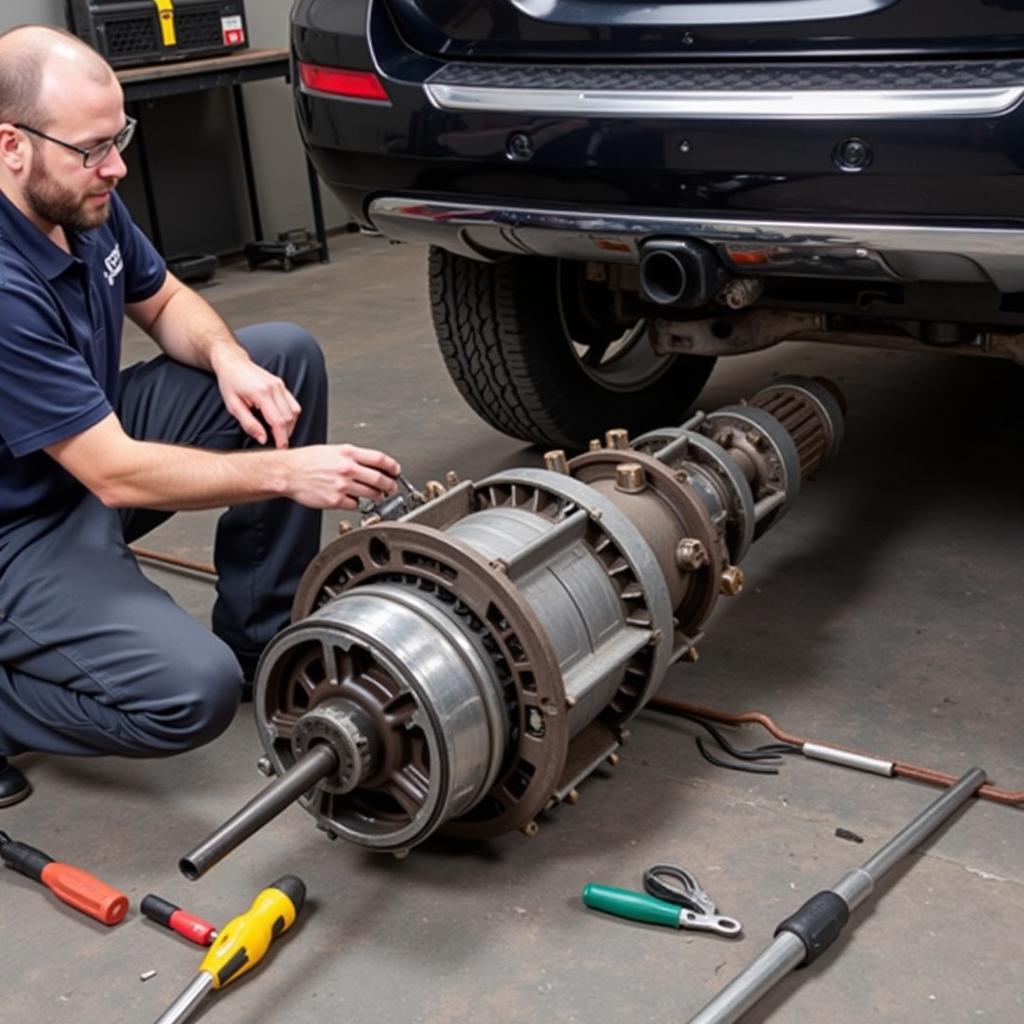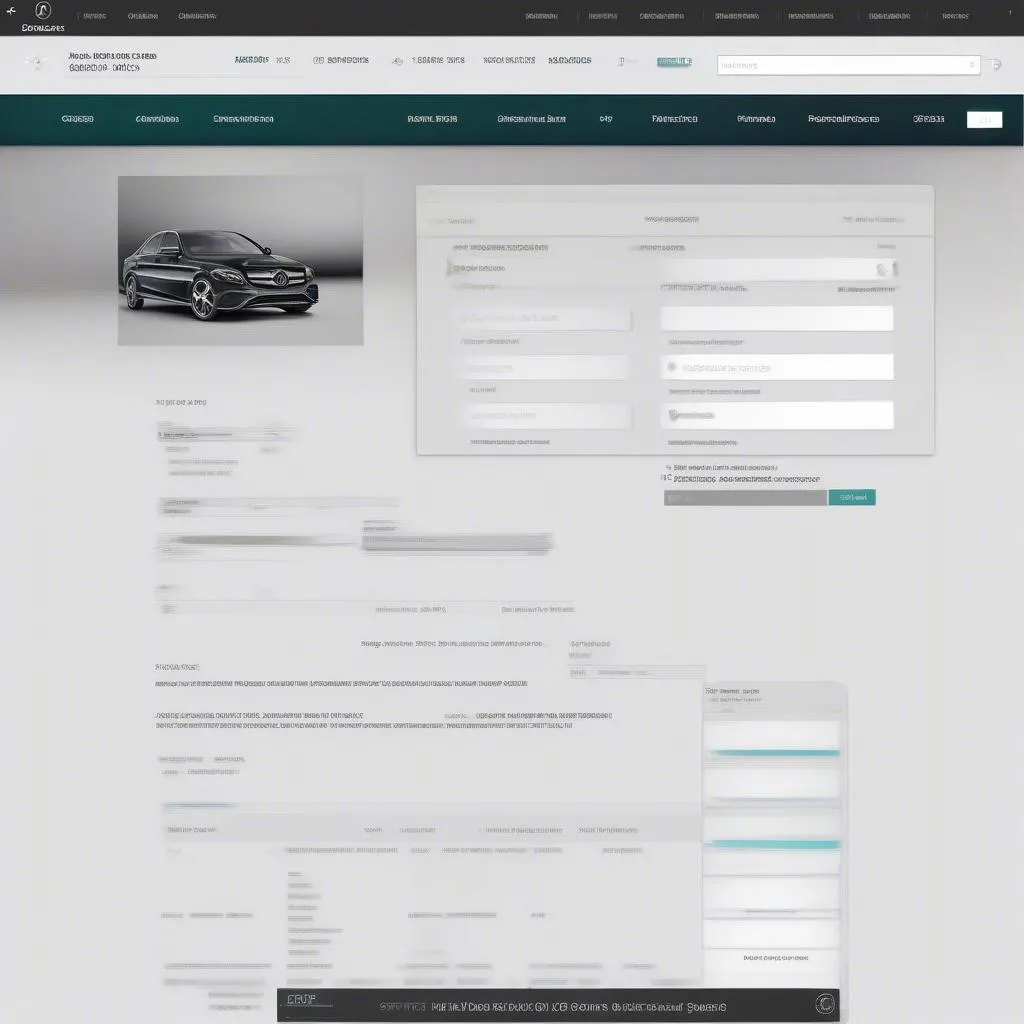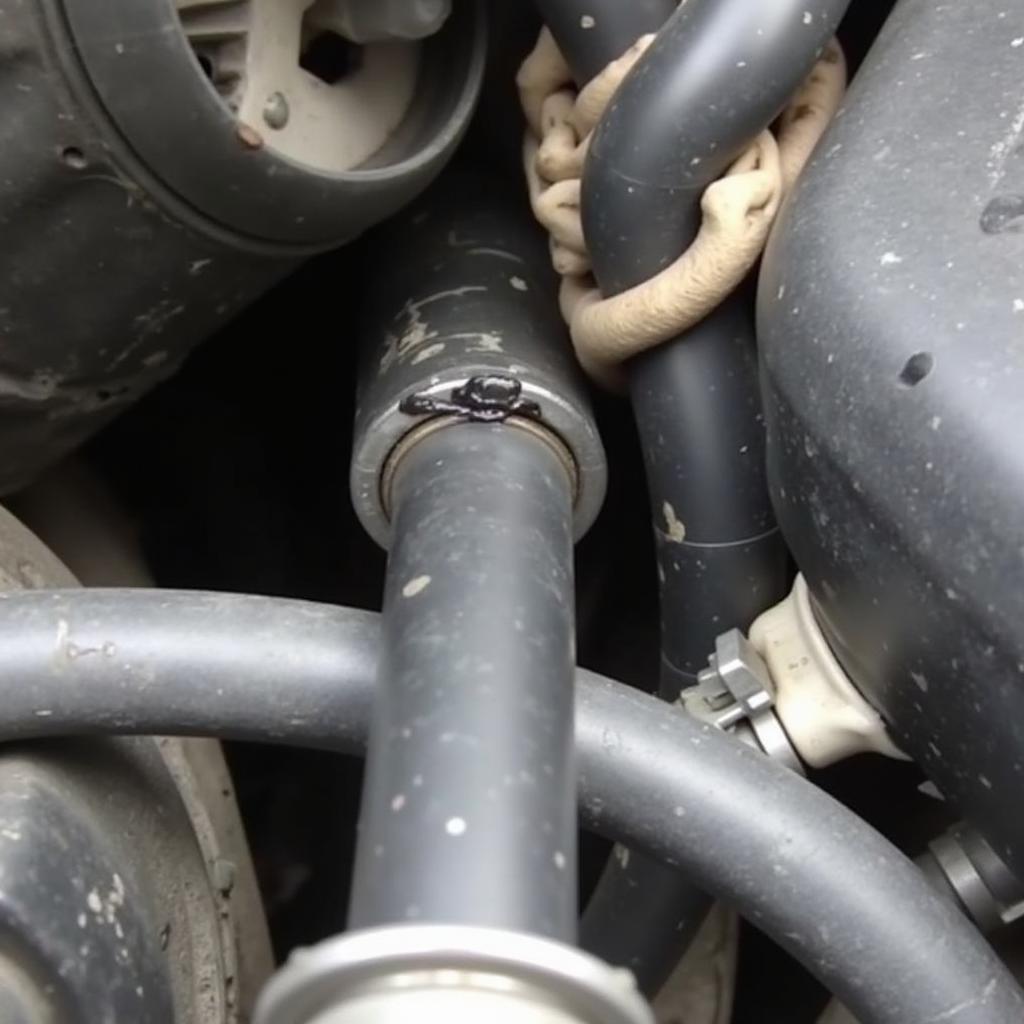Mercedes GL drivetrain noise can be a frustrating issue, ranging from a mild hum to a loud grinding sound. This guide dives deep into the common causes, diagnostic procedures, and potential solutions for addressing drivetrain noise in your Mercedes GL. We’ll explore everything from transfer case issues to differential problems and provide valuable insights to help you get back on the road smoothly and quietly. mercedes glc crabbing fix helps to understand some issues might be present in several models.
Understanding Mercedes GL Drivetrain Noise
Drivetrain noise in a Mercedes GL can manifest in various ways, including whining, humming, clunking, grinding, or clicking sounds. Pinpointing the source of the noise can be challenging, as the drivetrain encompasses several interconnected components.
Common Causes of Drivetrain Noise
Several factors can contribute to drivetrain noise in a Mercedes GL. Some common culprits include:
- Worn Transfer Case: The transfer case, responsible for distributing power between the front and rear axles, can develop wear and tear over time, leading to whining or humming noises, especially during acceleration or deceleration.
- Differential Problems: Issues with the front or rear differential, such as worn gears or bearings, can cause a humming or grinding noise, particularly when cornering.
- Driveshaft Issues: A worn or damaged driveshaft, including its universal joints (U-joints) or center support bearing, can create vibrations and noise that increase with speed.
- Wheel Bearings: While not strictly part of the drivetrain, failing wheel bearings can mimic drivetrain noise with a humming or rumbling sound that changes with speed and turning.
- Transmission Issues: Though less common, problems within the transmission itself, such as worn gears or bearings, can contribute to drivetrain noise.
Diagnosing the Problem
Diagnosing the source of drivetrain noise requires a systematic approach:
- Listen Carefully: Pay close attention to the type of noise, when it occurs (e.g., accelerating, decelerating, turning), and its location.
- Visual Inspection: Inspect the drivetrain components for visible signs of damage, leaks, or wear.
- Test Drive: A test drive can help isolate the noise and determine its behavior under different driving conditions.
- Professional Diagnosis: If the source of the noise remains elusive, consult a qualified Mercedes-Benz technician who can use specialized diagnostic equipment to pinpoint the issue.
What are the most common sounds associated with drivetrain issues?
Common sounds include whining, humming, clunking, grinding, and clicking.
Fixing Mercedes GL Drivetrain Noise
The solution to drivetrain noise depends on the underlying cause:
- Transfer Case Repair/Replacement: A worn or damaged transfer case may require repair or replacement, depending on the extent of the damage.
- Differential Repair/Replacement: Similarly, a faulty differential may need repair or replacement of worn components.
- Driveshaft Repair/Replacement: A damaged driveshaft, U-joints, or center support bearing will typically require replacement.
- Wheel Bearing Replacement: Worn wheel bearings must be replaced to eliminate the noise and ensure safe driving.
- Transmission Repair/Rebuild: Transmission issues can be complex and may require extensive repairs or a complete rebuild.
 Mercedes GL Differential Repair
Mercedes GL Differential Repair
“Regular maintenance is crucial for preventing drivetrain issues,” advises John Miller, a seasoned Mercedes-Benz technician with over 20 years of experience. “Regular fluid changes and inspections can identify potential problems early on, saving you time and money in the long run.”
Preventing Drivetrain Noise
Regular maintenance is key to preventing drivetrain problems in your Mercedes GL:
- Regular Fluid Changes: Adhere to the manufacturer’s recommended service intervals for changing transfer case, differential, and transmission fluids.
- Inspections: Regularly inspect the drivetrain components for signs of wear, leaks, or damage.
- Gentle Driving: Avoid aggressive driving habits that can put excessive strain on the drivetrain.
Conclusion
Addressing Mercedes GL drivetrain noise promptly is essential to prevent further damage and ensure safe and enjoyable driving. By understanding the common causes, diagnostic procedures, and potential solutions, you can take proactive steps to resolve the issue and maintain the optimal performance of your vehicle. Remember, early detection and intervention are key to minimizing repair costs and extending the life of your Mercedes GL’s drivetrain. Don’t let drivetrain noise ruin your driving experience; address it today.
FAQ
- What is the most common cause of drivetrain noise in a Mercedes GL? A worn transfer case is often the culprit.
- How can I tell if my differential is causing the noise? A humming or grinding noise, especially when cornering, may indicate a differential issue.
- Can worn wheel bearings cause drivetrain-like noise? Yes, failing wheel bearings can mimic drivetrain noise.
- How much does it cost to fix drivetrain noise? The cost depends on the specific issue and the necessary repairs.
- Is it safe to drive with drivetrain noise? It’s best to address the issue promptly to prevent further damage and ensure safety.
- How can I prevent drivetrain noise? Regular maintenance, including fluid changes and inspections, is crucial for prevention.
- Should I take my Mercedes GL to a specialist for drivetrain noise? Consulting a qualified Mercedes-Benz technician is recommended for accurate diagnosis and repair.
“Ignoring drivetrain noise can lead to more significant and costly problems down the road,” warns Sarah Johnson, a certified automotive engineer. “Addressing the issue promptly is always the best course of action.”
Need support? Contact us via Whatsapp: +1 (641) 206-8880, Email: [email protected], or visit us at 276 Reock St, City of Orange, NJ 07050, United States. Our customer service team is available 24/7.



